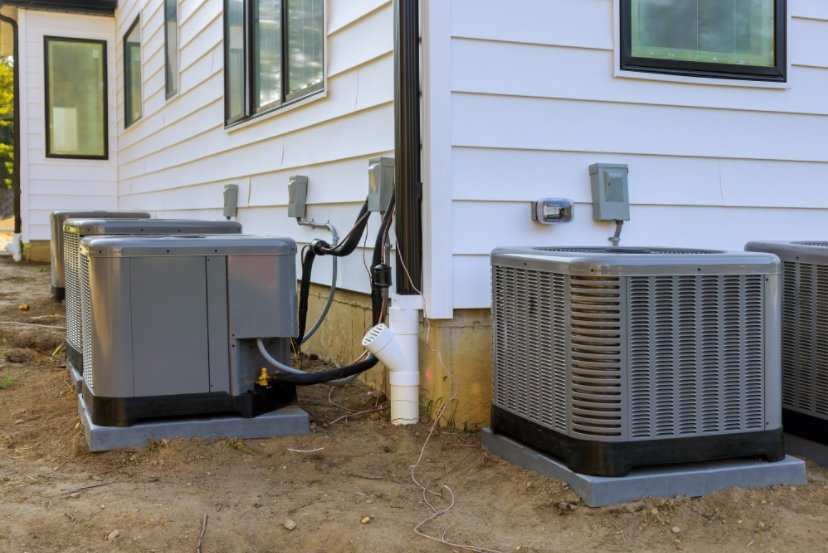Many of us do not know that the average life of your HVAC unit is thirteen to sixteen years? If you are going to move to a new home soon, you will surely be replacing your HVAC system. But HVACs and air conditioners require proper maintenance to last that long. Indeed, HVAC systems and air conditioners do not last forever, but there are ways to extend functional life as long as possible. Proper maintenance of your HVAC systems will ensure that they perform efficiently and continue to work as they should throughout their useful life and add a few more years of work over their entire helpful lifespan. Here are five ways to extend your HVAC unit’s life so that you don’t have to spend more money to replace it prematurely.
Twice A Year Maintenance Plan
HVAC systems generally do not require high maintenance. This does not mean that you will only call an HVAC installation technician when the system is not functioning properly. Routine checks are essential if you want your HVAC system to last a long time. It is best to schedule adjustments at least twice a year. Contact a home service company to have your furnace serviced in the fall and your air conditioner in the spring. This preventive maintenance usually includes a good inspection, cleaning, lubrication, and any necessary adjustments. Maintenance should include a thorough inspection of the HVAC system, lubricating moving parts, cleaning dirt from the condensate drain tube, replacing filters, cleaning the condenser, etc.
Keep The Outdoor Unit Clean, Tidy, And Unobstructed
Make sure there are at least two feet of free space around the outdoor unit at all times. If you have any shrubs, trees, or other landscape features nearby, keep them trimmed not to grow on the unit. The less clogging, the longer the entire system will run.
Change The Air Filter Frequently
Disposable fiberglass filters should be replaced every twenty-five to thirty days, but check your filter and your oven manual to see how often the filter needs replacing. Some filters can be designed to last up to a year! A dirty filter will make your HVAC system work harder to circulate air, and this can cause further wear and tear on the system. A dusty air filter means your HVAC system has to work harder to circulate air throughout your home. This can be particularly painful for the ventilator, but the whole system can suffer when it can barely breathe.
Utilize The Auto Fan Option And Add New Damper
If your HVAC system has an automatic fan setting, turn it on. Most HVAC systems have two fan settings: “on” and automatic. Most people, by choice or mistakably, set it to “on.” This means that your device’s fan will run continuously. If you want to save energy, lower your electric bill and unload your HVAC system. There are advantages to using the “on” parameter. It helps trap more dust, and in homes with people who have respiratory sensitivities or allergies, it can help breathe easier.
But the main shortcoming is that it forces the system to work a lot harder and it takes lots of electricity and time to cool the area. Changing to “automatic” allows the fan to run only when the system is actively heating or cooling. Some HVAC systems have two-speed fans that switch to a slower fan speed between heating and cooling cycles.
Installing HVAC dampers can improve the efficiency of your air conditioning. They even enhance the durability of your HVAC system. Damper paddings affect your HVAC’s ability to maintain a comfortable level of humidity and temperature in your home. The new damper paddings increase the life of HVACs and improve their efficiency and reduce their energy consumption. You can talk to the HVAC installation technician about the damper replacement.
Regular Checkups Of The Condenser, Plus Inspect The Vents
The condenser of your air conditioner takes many knock-backs and blows, especially during heavy storms and heavy rains. Although they are designed to last for years, it is best to check the capacitor regularly. Look for signs of damage after a major storm. Now and then, and especially after every major storm, check your capacitor for signs of damage. When doing so, be sure to remove any build-up of leaves or weeds in or around the condenser. If vegetation grows right next to the unit, cut it back. Your condenser needs room to breathe. Keep weeds and leaves away from the condenser so that you can breathe the air easily.
The vents inside your home or business are responsible for distributing fresh air, but the vents can become blocked over time. Appliances, furniture, and wall coverings are three common reasons for blockages, which not only raise the indoor temperature but make the air conditioning unit work harder than necessary. Have your air conditioning replacement service check the airflow from the vents and if the airflow is not up to the mark, fix it.
Related posts
Subscribe Now
* You will receive the latest news and updates on your favorite celebrities!
Meet the Author

Gillion is a multi-concept WordPress theme that lets you create blog, magazine, news, review websites. With clean and functional design and lots of useful features theme will deliver amazing user experience to your clients and readers.
Learn moreCategories
- Animals (6)
- Business (579)
- Cooking (3)
- Design (17)
- Education (59)
- Entertainment (62)
- FASHION (89)
- Fashion (39)
- Featured (19)
- FOOD (42)
- Guide (55)
- Health (290)
- HOME (184)
- Interior (14)
- Life (8)
- Lifestyle (111)
- Motivation (6)
- News (47)
- People (4)
- Photography (5)
- Review (4)
- Style (4)
- TECH (176)
- Travel (107)
- Uncategorized (1,441)



Stay connected